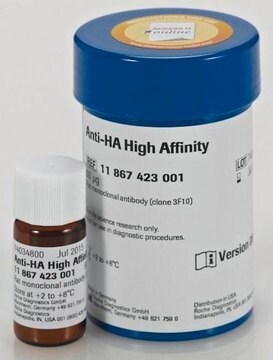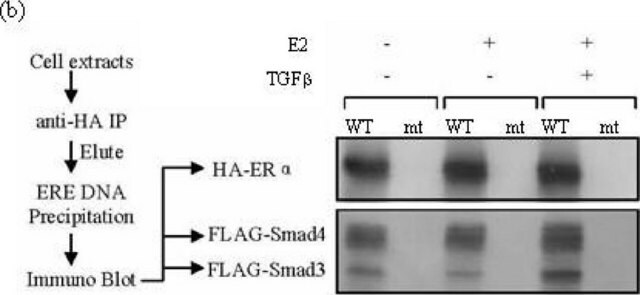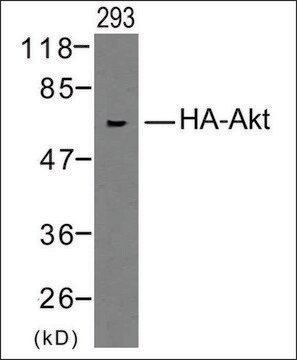ROAHA
Roche
Anti-HA (12CA5)
from mouse IgG2bκ
Synonym(s):
antibody
About This Item
Recommended Products
biological source
mouse
Quality Level
conjugate
unconjugated
antibody form
purified immunoglobulin
antibody product type
primary antibodies
clone
12CA5, monoclonal
Assay
>90% (HPLC and SDS-PAGE)
form
frozen liquid (11666606001)
lyophilized (11583816001)
packaging
pkg of 200 μg (11583816001)
pkg of 5 mg (11666606001 [1 ml])
manufacturer/tradename
Roche
concentration
5 mg/ml (11666606001)
isotype
IgG2bκ
epitope sequence
YPYDVPDYA
storage temp.
−20°C
General description
Specificity
Immunogen
Application
- Dot blots
- Immunochemistry
- Immunoprecipitation
- Western blotting
Biochem/physiol Actions
Quality
Preparation Note
The following concentrations should be taken as a guideline:
- Dot blot: 0.1 to 1 μg/ml
- Immunfluorescence: 1-10 μg/ml
- Western blot: 0.1 to 1 μg/ml
Reconstitution
Other Notes
Not finding the right product?
Try our Product Selector Tool.
Storage Class Code
13 - Non Combustible Solids
Flash Point(F)
does not flash
Flash Point(C)
does not flash
Certificates of Analysis (COA)
Search for Certificates of Analysis (COA) by entering the products Lot/Batch Number. Lot and Batch Numbers can be found on a product’s label following the words ‘Lot’ or ‘Batch’.
Already Own This Product?
Find documentation for the products that you have recently purchased in the Document Library.
Customers Also Viewed
Our team of scientists has experience in all areas of research including Life Science, Material Science, Chemical Synthesis, Chromatography, Analytical and many others.
Contact Technical Service










